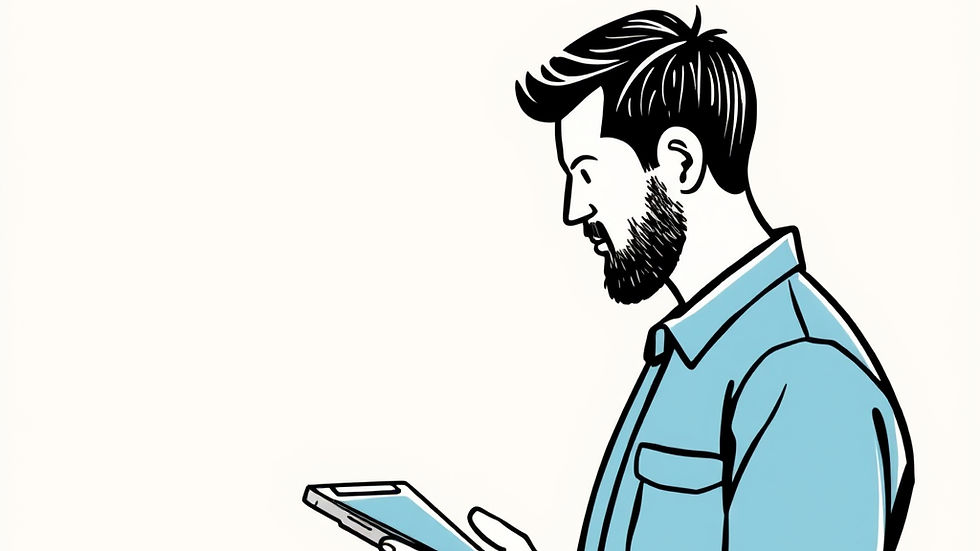The Future of Google Ads: What Businesses Need to Know in 2025
- Thomas Walker
- Jul 10, 2025
- 3 min read
As we move deeper into 2025, Google Ads continues to evolve at a rapid pace. While its core mission, connecting businesses with ready-to-buy customers, remains the same, the strategies, tools, and rules of the game are changing dramatically. Driven by advances in AI, rising privacy standards, and a shift in creative expectations, Google Ads is becoming both more powerful and more complex.
At Atlas MKT, we believe understanding these changes is key to staying competitive. Here’s what businesses need to know to not only keep up, but to thrive.

AI-Driven Bidding: Smarter, Faster, More Automated
One of the biggest shifts shaping Google Ads is the widespread adoption of AI-driven bidding. While automated bidding has been around for years, Google’s newer AI-powered strategies are now able to analyze massive data sets in real time, optimizing bids far more effectively than manual adjustments ever could.
In 2025, these machine learning models consider signals like user behavior, device, location, time of day, and even subtle contextual clues to maximize your campaign’s ROI. However, businesses still need to guide these AI systems with clear goals. Whether it’s maximizing conversions, achieving a specific cost per acquisition, or focusing on high-value customer actions, defining the right objectives is crucial.
At Atlas MKT, we work with clients to set up intelligent bid strategies that align with their unique goals while leveraging Google’s AI to stay ahead of the competition. Explore some of our campaign successes in our portfolio.
Privacy Updates and the End of Third-Party Cookies
Another major change impacting Google Ads in 2025 is the ongoing shift toward stronger privacy regulations. With the phase-out of third-party cookies and increasing scrutiny on data collection, advertisers are being pushed to adapt how they track and target users.
Google’s Privacy Sandbox initiative aims to balance personalization with user privacy, but it also means brands must rely more on first-party data, information they collect directly from their own audience. Email lists, CRM data, and website interactions are now more valuable than ever.
Businesses that invest in building trusted relationships and collecting quality first-party data will be better positioned to maintain targeting accuracy and improve their ad performance in this new environment. For actionable strategies on preparing your brand for a cookieless future, dive into our insights on the Atlas MKT blog.

Creative Trends: Moving Beyond the Static Ad
As AI handles more of the technical heavy lifting, creative has become the new battleground for differentiation. In 2025, static, text-heavy ads are losing ground to more dynamic and visually compelling formats.
Video ads, motion graphics, and interactive elements are now central to capturing attention and driving engagement. Responsive display ads that adapt automatically to different placements and audiences are also growing in importance, giving brands more flexibility and reach.
The creative must not only look good but also align seamlessly with the brand’s messaging and value proposition. Strong creative is what stops the scroll, builds trust, and ultimately converts. At Atlas MKT, we help clients develop compelling visuals and messaging that perform across all Google Ads placements. To see how this comes to life, explore our portfolio.
The Rise of Automation: Opportunity and Responsibility
The increasing automation of Google Ads campaigns, from smart bidding to automated ad creation, offers massive potential benefits but also requires careful oversight. Automated systems can quickly scale campaigns, optimize budgets, and test variations faster than any human team.
However, without strategic input, automation can also lead to wasted spend, misaligned messaging, or targeting the wrong audiences. Businesses still need human expertise to guide these tools, set guardrails, and interpret results.
This is why we emphasize the importance of blending data-driven automation with creative strategy and brand insight. Automation should be seen as an amplifier of smart strategy, not a replacement for it.

Final Thoughts: Adapt or Be Left Behind
Google Ads in 2025 isn’t about simply buying clicks, it’s about building a holistic, intelligent, and brand-aligned system that adapts in real time. AI, privacy changes, and new creative standards are reshaping how brands connect with customers.
Those who embrace these shifts early will outperform their competition and build more resilient digital ecosystems. Those who don’t risk falling behind as the landscape continues to evolve.
If you're ready to future-proof your Google Ads strategy and ensure your campaigns convert today, and tomorrow, we’d love to help.👉 Book a call today to talk with our team.
For more strategies, insights, and real-world results, check out our portfolio and explore the Atlas MKT blog.






Comments